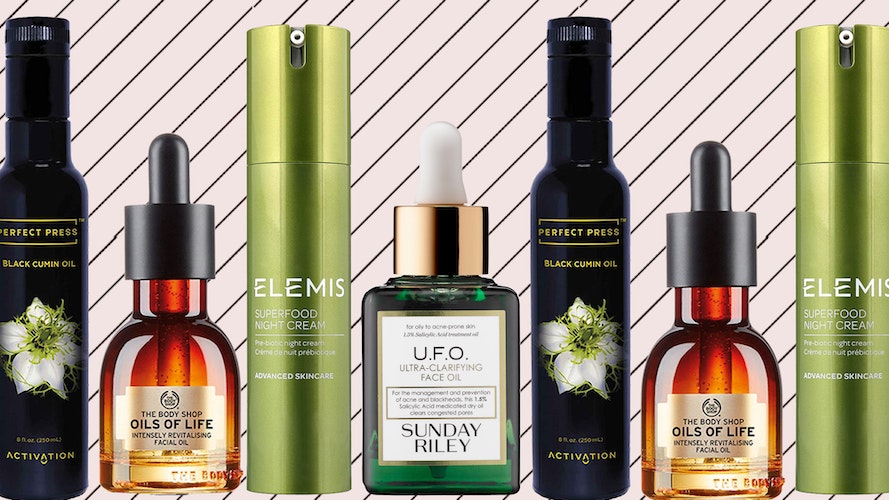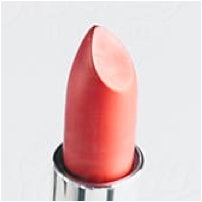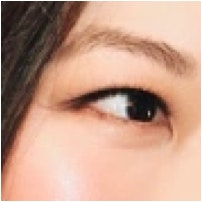This Ingredient Has Been Used For 2,000 Years — Here’s Why It Should Be Part of Your Skincare Routine
[email protected] | August 04, 23

You might’ve sprinkled them on avocado toast or drizzled their oils on your salad, but black seeds — such as black caraway, black cumin, black onion seed, nigella sativa, and kalonji — have the power to do more than just enhance the flavor of your Instagrammable meal. In fact, black seeds have a long history of delivering health and beauty benefits. They have been used for over 2,000 years to make an array of home remedies meant to tackle everything from gastrointestinal diseases, influenza, wound healing, and various skin conditions, according to cosmetic chemist Kelly Dobos. Plus, they were even discovered to be in King Tut’s tomb, as the seed is native to the Middle East as well as Eastern Europe, and Western Asia.
Despite millennia of popularity in certain circles, it’s only recently that the ingredient has made its way to our skincare aisles. There have only been a small number of studies on the ingredient, but the results hold up much of what’s been purported for centuries. “Black seed oil has some research that supports its use as an anti-inflammatory, antioxidant, and its ability to decrease blood pressure, along with its antibacterial, antifungal and antiviral properties,” explains Dr. Rachel Nazarian of Schweiger Dermatology Group in NYC. “It has been used successfully in multiple skin conditions as well.” Most significantly, it’s proven to help fight against (and soothe) acne.
A study published in 2017 attributed much of the calming skincare benefits to an active compound called thymoquinone. It’s been shown to clear up blemishes, though the concentration of the compound would need to be high in order to have a significant effect. But the results suggest that it could be beneficial in the battle against breakouts. In fact, it could even speed up the wound healing process, just in case you can’t keep your hands off that zit.
“[Black seed oil] has been studied in the treatment of acne on the face and showed significant improvement, which was attributed to its antimicrobial and anti-inflammatory pathways,” Nazarian says. “Acne-prone and sensitive skin types would benefit from the anti-inflammatory and antioxidant properties that make it useful for skin anti-aging.”
And it’s already made its way to the acne care category, as it’s a star player in beauty buys like Prim Botanicals Potion N°1 ($26) and Sunday Riley® U.F.O. Ultra-Clarifying Face Oil ($40). The latter blends it with a dose of salicylic acid to eliminate spots that are already there and to prevent pimples from popping up in the future. Note: Dobos advises against combining a formula like this one with other acne treatments (such as retinoids and hydroxy acids), as it may cause dryness and sensitivity to sun exposure. So, of course, don’t forget to slather on some sunscreen!
That said, black seed oil isn’t just a wunderkind for the acne-prone. The slick stuff also comes packed with fatty acids, including omega-6 and omega-9, as well as amino acids, vitamins, minerals, and a slew of antioxidants. These all keep drying and aging skin looking soft, supple, and youthful, according to cosmetic chemist and founder of Skinects.com, Ni’Kita Wilson. “Omega-6 and Omega-9 helps with skin cell turnover and keeping the skin hydrated,” she explains. “The amino acids also help to draw water to the skin’s surface to help keep the moisture balance in the uppermost layer of the skin. They also create a thin film on the skin and hair to seal moisture helping with elasticity.” Remember, elasticity is the key to firm, smooth skin.
As a result, black seed oil is beginning to catch on as an anti-aging ingredient. Brands like Elemis® have incorporated it into some of its skincare essentials, including the Elemis Superfood Night Cream ($47). You can also find it in Activation Product Black Cumin Oil ($49), and The Body Shop Oils of Life® line, which includes everything from cleanser to eye cream. According to Dobos, you can combine the oil and moisturizer in the lattercollection to increase the effective dose of the black seed oil into your regimen.
That’s not all, though: this ingredient has surprisingly said to be an effective treatment for vitiligo. While this disease attacks the skin’s melanocytes, a 2014 study found that the oil was able to improve the appearance of the condition by reducing the size of the lesions and even spreading melanin in the skin when applied twice a day. “The oil may cause repigmentation of skin and normalizing of skin tone,” says Nazarian. (But be sure to consult with your dermatologist to see if this is right for your needs before trying it!)
Whether you’re looking to balance out your skin’s moisture levels, alleviate your acne, or even out your complexion, black seed oil has the potential to become the ultimate ingredient powerhouse for many of your skincare needs. It looks like King Tut just might have been on to something.
Allergan may receive commission for purchases made through links in this article.






